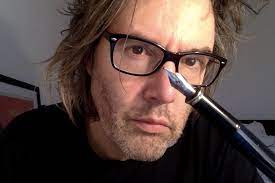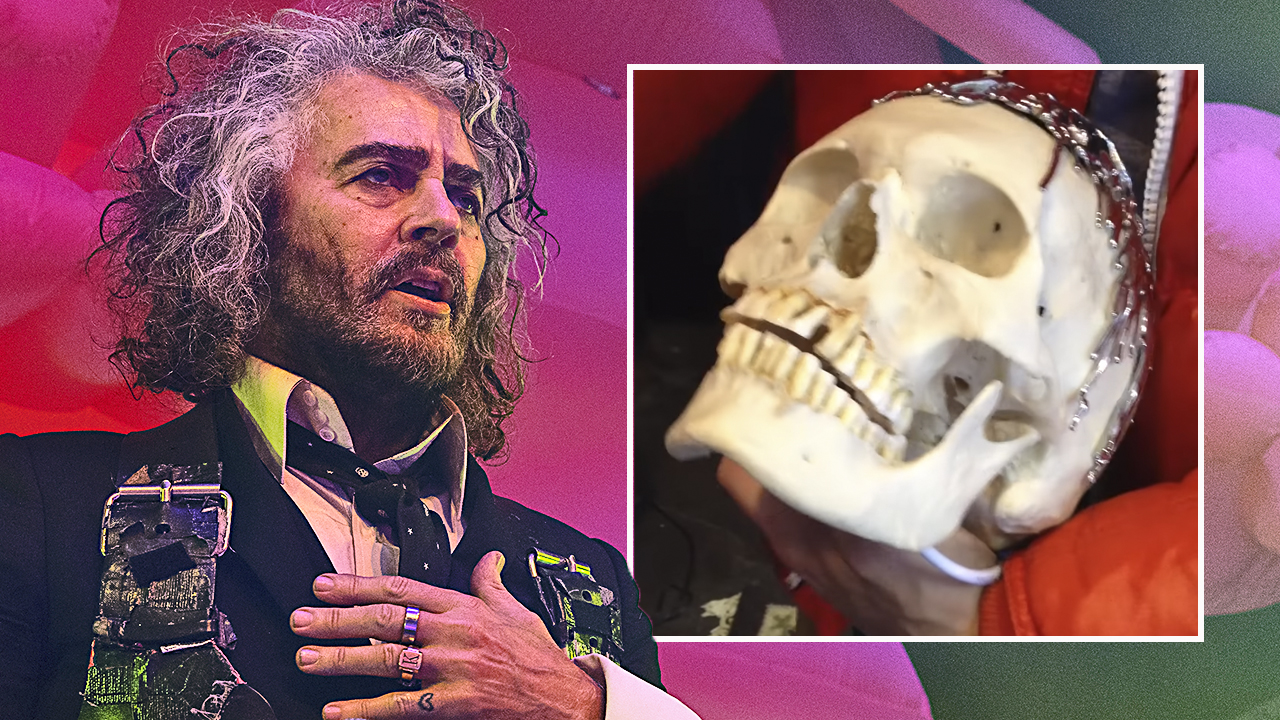“I always knew that I was going to return to the Amory Wars." Coheed And Cambria and Vaxis – Act I: The Unheavenly Creatures
After exploring personal turmoil on Coheed And Cambria’s last release, frontman Claudio Sanchez is now relaxed, revitalised and ready to take us back into his Amory Wars universe.
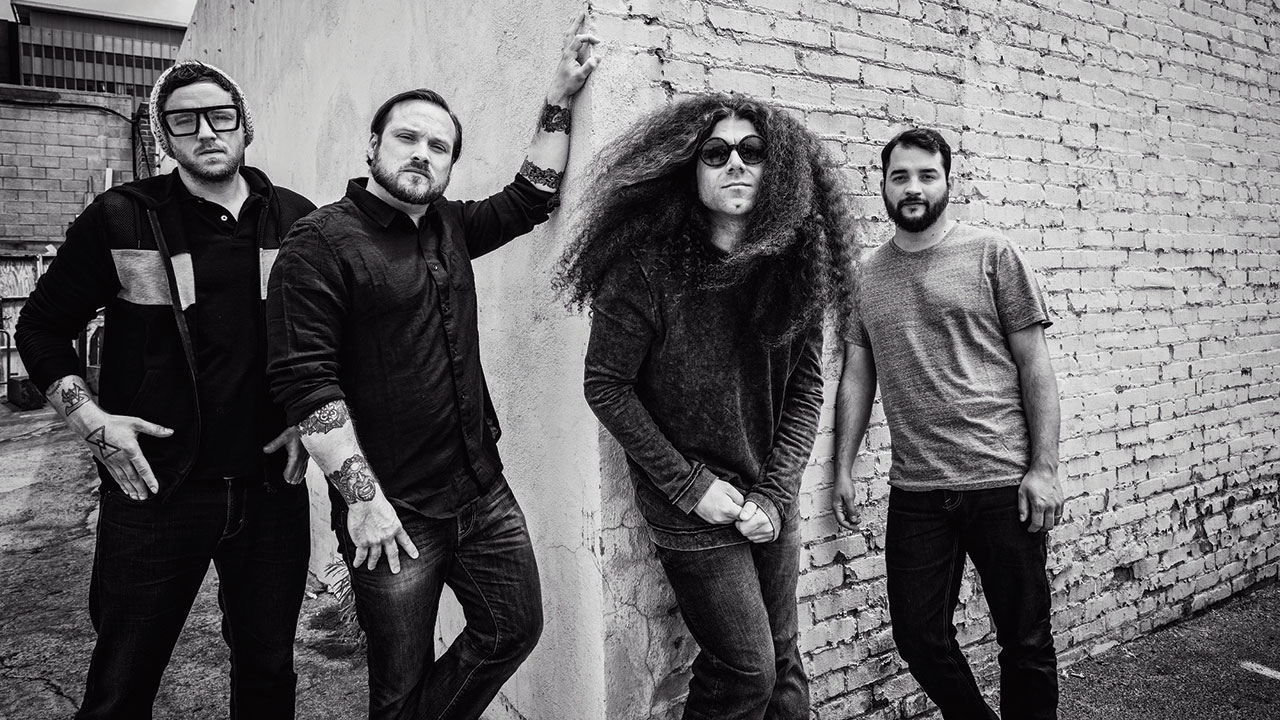
Coheed And Cambria’s 2018 release Vaxis – Act I: The Unheavenly Creatures saw mainman Claudio Sanchez return to the mythos he's built most of the band's conceotual albums on. Prog sat down to discuss why.
Claudio Sanchez was only getting a cup of coffee.
“Oh, this never happens,” says the unstintingly civil Coheed And Cambria singer and guitarist down the line from Nyack, 45 minutes north of New York City. He’s visiting his family in the town he grew up in, and Coheed’s reputation has preceded him, not least to the barista behind the coffee counter.
“He and his girl walked down the aisle to Here To Mars, and he wanted a photo. I mean, that never happens to us.”
Here To Mars is certainly an incongruous choice. As oblique a love song as Sanchez has ever written, it washed up in the aftermath of 2015’s The Color Before The Sun, arguably Coheed’s most introspective and down-at-heel album. Written around the themes of first-time fatherhood and the proposition of finding your place in the world, it’s easily Sanchez’s most personal album. It also swore off the idea of a concept (no mention of the band’s long-standing Amory Wars universe – about which Sanchez has also penned a comic book series – no tales set behind an alien sun), and allegories and metaphors were kept to a minimum. The Color… was set very much in the here and now.
“I always knew when writing The Color… that I was going to return to the Amory Wars,” says Sanchez. “For me, that album was really a statement for me becoming a dad: I knew I would never have those feelings again the way I did.
“We might have a second child, I don’t know, but that’s the first time I am ever going to experience that metamorphosis: me as an individual turning into a father. I wanted to attribute those feelings and emotions in song without the cover of a concept. I always knew I wasn’t going to abandon the Amory Wars in any way. I have such a good time living in that mythology and writing songs with those characters, I couldn’t see myself leaving it.”
Sign up below to get the latest from Prog, plus exclusive special offers, direct to your inbox!
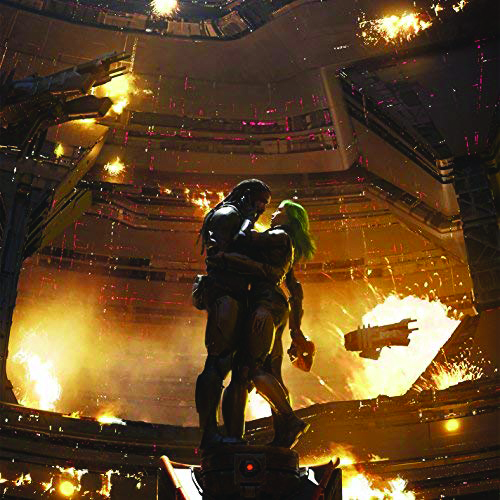
And while Sanchez might have returned to his place among the stars, upcoming ninth album Vaxis – Act I: The Unheavenly Creatures is a whole other Amory War universe to discover. It’s also the first part of a ‘pentalogy’ of albums, which makes Vaxis… the first of five albums to take us on an elongated arc somewhere beyond the sun.
“I decided that every Coheed record has some sort of numeric value to it, so, you know, Second Stage…, …Silent Earth: 3, everything has some sort of place in the mythology of the story that surrounds the band. And so this time around I wanted to figure out a clever way to make this part five and that’s sort of why I broke it up into a pentalogy.
“Axis is the son of these two characters, Creature and Sister Spider. He has a very relevant position in the Amory Wars universe and we don’t really give it up in the first record. We know he’s coming, we just don’t know how. But this story is the first one, it’s introducing us to a new cast of characters, their goals, their mission, their love interests and that’s pretty much it. We’re fitting in the foundations on this record as to who we’re going to follow in the next few stories.”
Why do you think the Amory Wars remains such a pivotal part of your make-up?
“I think it’s just my choice: I want to tell that story. I was thinking about this. Most singers or songwriters are coming from an autobiographical standpoint, primarily, and I just don’t choose to tell my story in that genre. I chose a sci-fi, fantasy genre. Initially it was just because I was insecure as a frontman way back when. Now I’ve just become so comfortable with it, I find it to be more fun because I’m allowed to take these things and try to form them into these other bodies of work. It’s really fun for me.”
Going back into space clearly suits the singer. When the Color… album was released, Sanchez was beset by self-doubt. To understand the existential battering he was undergoing at the time, you only have to listen to the lyrics to a song like You Got Spirit, Kid: ‘You’re number one/Go on living that farce/Cos nobody gives a fuck who you are…’
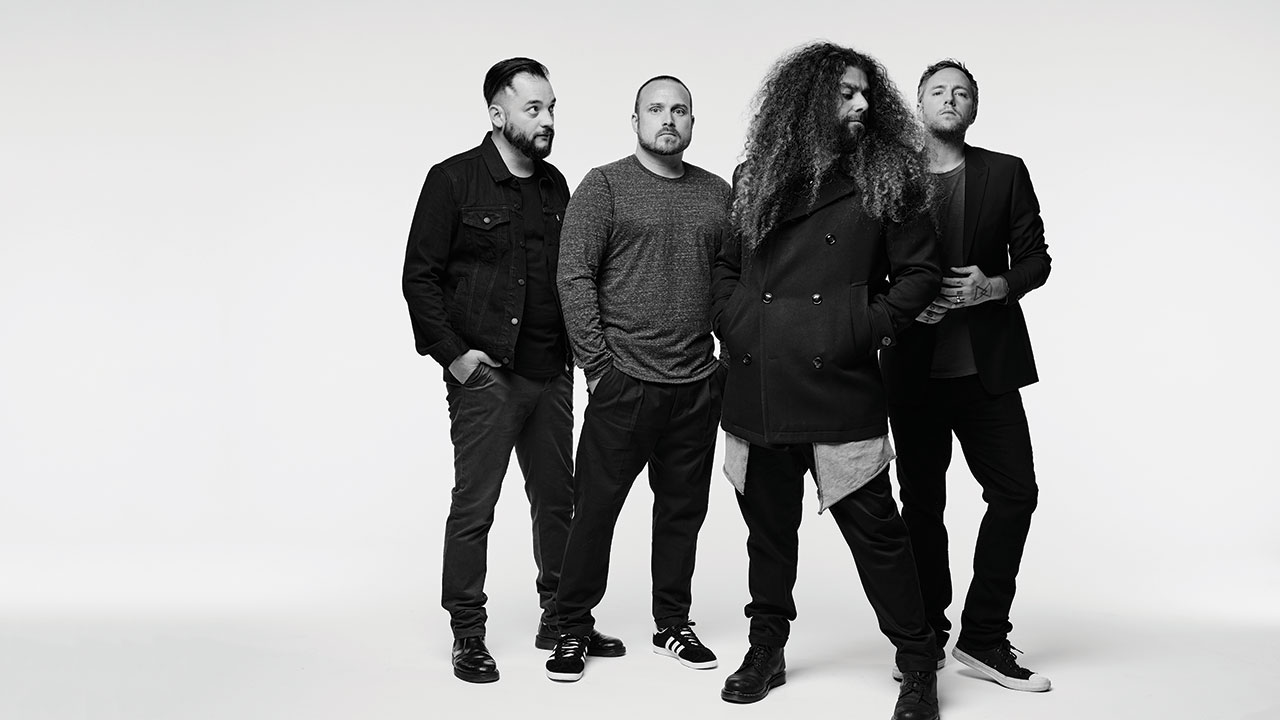
Fast forward to the summer of 2017. We were sitting backstage at the Koko venue in north London. The band were playing two nights, performing their third studio album, Good Apollo, I’m Burning Star IV, Volume One: From Fear Through The Eyes Of Madness. Sanchez’s son Atlas and partner Chondra were sat across the room from us. And if Prog saw a better live show in 2017 then we’ve forgotten it. That night Sanchez talked about creating a piece of music bigger than him or Coheed And Cambria, the great high ground reached by artists like Pink Floyd, career-defining moments that somehow transcend genre and even the band themselves.
“I remember that conversation,” says Sanchez, “and I think this is us definitely scratching the surface of that. I think this record is part of a bigger picture. I think we’re really going to experiment more going forward and really try to make that statement come true by creating this five-part piece. I think this is the right direction to go in.”
He has said that working on this record reminded him of being younger, of starting out as a band again. What did he mean?
“I think it’s probably the way I approached it, the fact I had so much time to work on it,” says Sanchez, “I think when we did The Second Stage Turbine Blade [2002], there was no schedule, and even for In Keeping Secrets… a year later I didn’t feel the pressure of being a professional entertainer. But that sort of leaks into your consciousness when you’re creating this stuff cos you’re like, ‘Record’s done, time to do the next one.’
“With this one, I wanted to take some time off. I didn’t want to go back on the road or into the studio, I didn’t want to force the construct of being who I am – I just wanted to relax. And that’s why I think I felt like being younger, and when I listen to it, it reminds me of those older records, not because that’s what I was striving for, but that’s what happens when I’m given the time. It allows me to sort of experiment and try to live with things a little longer.
“Take a song like The Dark Sentencer – that wasn’t easy to write. I have four versions of that song and I almost abandoned it until finally I could see the forest through the trees. Any other situation, I probably would have said, ‘You know what, there’s not time to work on this,’ and moved on. But this time, I had the time, I made sure I wasn’t doing anything, that I wasn’t going to rush into being Claudio of Coheed And Cambria. I was stepping around that creative burnout. I took myself out of the equation.”
Was it hard to insinuate his way back into that world? It’s been over three years since The Color Before The Sun and longer still since he travelled through the Amory Wars universe.
“Yeah, I didn’t know what to expect when I started working on it,” says Sanchez. “The first song was The Pavilion (A Long Way Back), and that song was right out of the ashes of The Color Before The Sun. I mean, this was in February 2016, so, no concept, I had no idea what the story was going to be. I just kept writing as an exercise and things were coming and some things were sticking and some weren’t. It wasn’t until I found Old Flames and then out of that song came Unheavenly Creatures, and then those two songs really helped me understand: ‘Okay, now I see the concept, now I see some of the characters.’ But for the most part I wasn’t sure. I think the last song we did was The Gutter. That wasn’t done until January this year, and we were in the studio a month later.”
And where next for Vaxis, Creature and Sister Spider? Sanchez isn’t saying, though he will admit to already having the concepts and titles of the next four records.
“I know where I have to go – now it’s how I get there. But, you know, all records have a tricky curve, they’re all kinda hard because they’re coming from a personal spot. This one was just as difficult as The Color…, but in a different way. The struggle here was where in the story I wanted to put this thing – was there even a place? Every record’s going to have its hurdle.”
And then Sanchez pauses and looks heavenward to find and follow his star.
Philip Wilding is a novelist, journalist, scriptwriter, biographer and radio producer. As a young journalist he criss-crossed most of the United States with bands like Motley Crue, Kiss and Poison (think the Almost Famous movie but with more hairspray). More latterly, he’s sat down to chat with bands like the slightly more erudite Manic Street Preachers, Afghan Whigs, Rush and Marillion.
